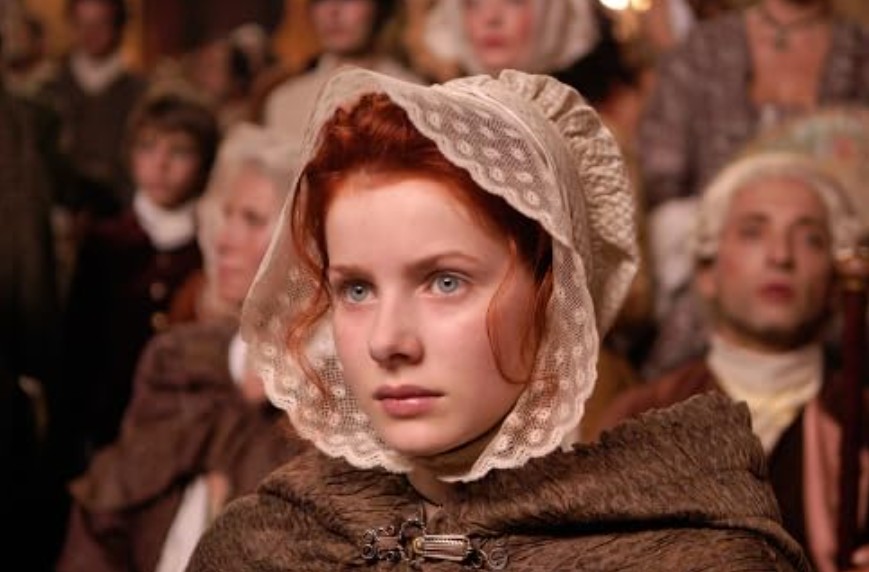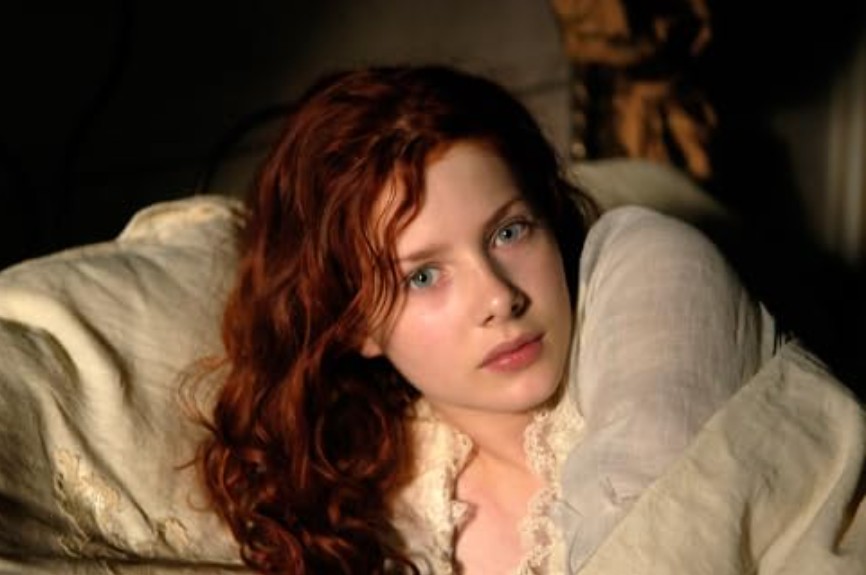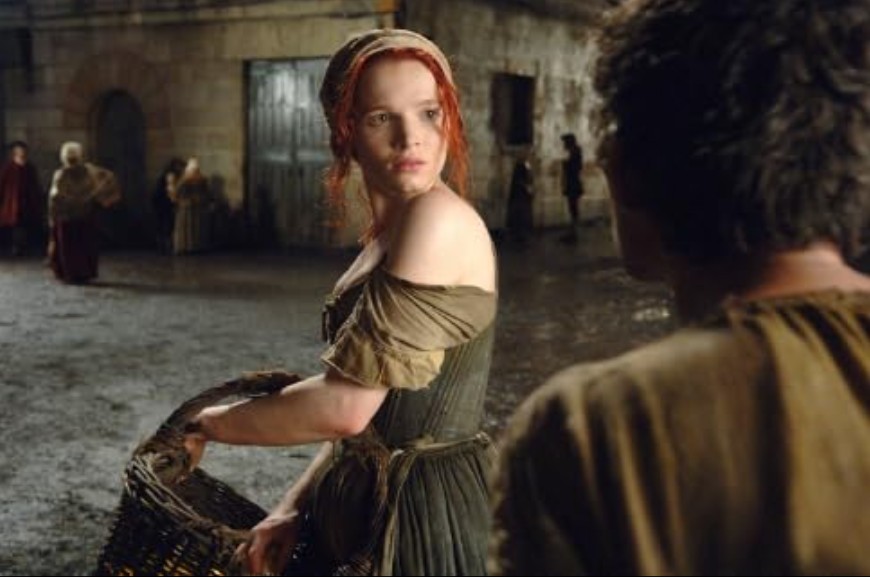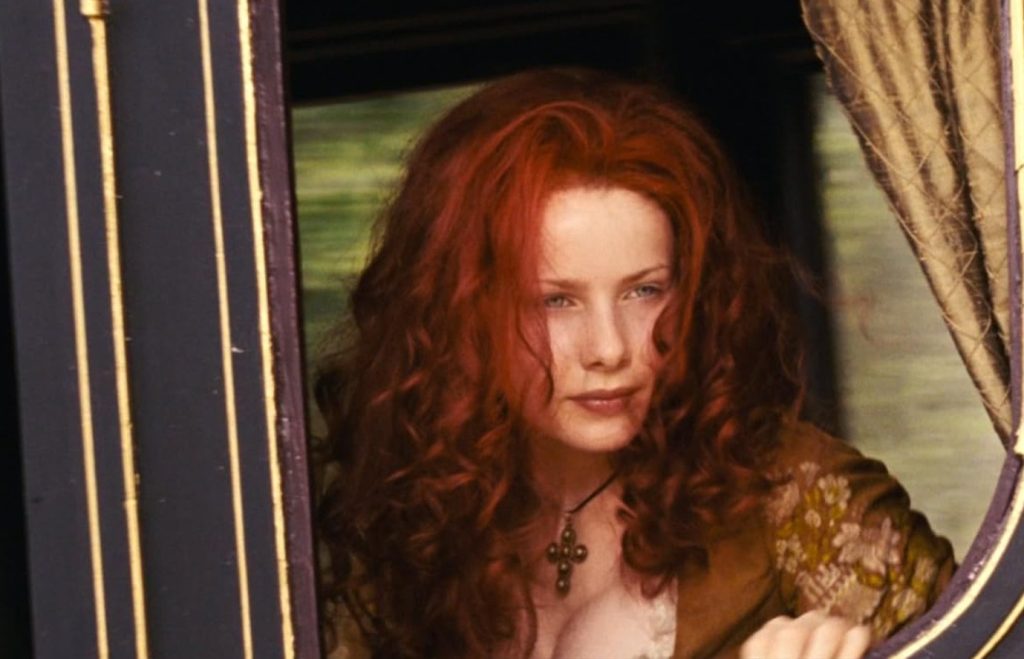
Perfume: The Story of a Murderer (2006), directed by Tom Tykwer, is an extraordinary cinematic experience that delves into the power of scent, obsession, and the human condition. Based on Patrick Süskind’s internationally acclaimed novel of the same name, this film invites viewers into the mind of Jean-Baptiste Grenouille, a man with an uncanny ability to smell but no personal scent of his own. The film is a dark and twisted journey through a sensory world of perfumes and murder, exploring the depths of human desire and the lengths one will go to achieve perfection. With a gripping narrative, stunning cinematography, and a haunting score, Perfume is a film that challenges the senses and provokes deep reflection.
The story of Perfume follows Jean-Baptiste Grenouille (played by Ben Whishaw), an orphan born in 1738 Paris with a heightened sense of smell. From the moment he is born, Grenouille is surrounded by a world that doesn’t understand or appreciate his unique gift. Raised in a harsh and unforgiving world, Grenouille becomes obsessed with capturing the essence of human scent, particularly that of beautiful young women. His obsession leads him to commit a series of gruesome murders, as he attempts to create the perfect perfume—one that will grant him ultimate power over others.
The film’s premise alone is enough to intrigue any viewer, but it is the way in which Tykwer brings this chilling story to life that truly sets Perfume apart from other films in the thriller and psychological horror genres. The visual elements of the film are carefully crafted to match the film’s thematic focus on scent and sensory experience. Cinematographer Frank Griebe uses a palette of rich, earthy tones to capture the period setting of 18th-century France, while the camera work immerses the viewer into Grenouille’s world, often focusing on small, intimate details that evoke a strong sense of smell. Tykwer uses visual metaphors and subtle imagery to convey the abstract concept of scent, allowing the audience to experience the story through Grenouille’s senses.
Ben Whishaw’s portrayal of Jean-Baptiste Grenouille is nothing short of remarkable. Whishaw brings a sense of cold detachment and intensity to the character, capturing Grenouille’s inner turmoil and obsessive nature. While Grenouille lacks a personal scent, Whishaw infuses the character with an unsettling presence that makes him both fascinating and repellent. His portrayal of a man who is consumed by the pursuit of perfection through scent is both chilling and tragic. Whishaw’s performance anchors the entire film, making Grenouille’s descent into madness all the more compelling.
The supporting cast of Perfume is equally impressive. Dustin Hoffman plays the role of Giuseppe Baldini, a struggling perfumer who becomes Grenouille’s mentor. Hoffman’s portrayal of Baldini adds a layer of complexity to the film, as the character represents the commercialization of art and the corrupting influence of ambition. Rachel Hurd-Wood plays the role of Laura, a young woman whose scent becomes the object of Grenouille’s obsession. Hurd-Wood’s performance brings depth to her character, serving as both a symbol of beauty and innocence, and a catalyst for Grenouille’s murderous actions.
The film’s most striking feature is its ability to convey the concept of scent in a visual medium. Since scent cannot be directly represented on screen, Tykwer and his team rely on creative cinematography and sound design to immerse the audience in Grenouille’s olfactory world. The sequences that depict Grenouille’s experiences with scent are hypnotic and dreamlike, blending surreal visuals with haunting sounds that evoke the power of scent to both seduce and destroy. These scenes are some of the most powerful in the film, as they allow the audience to experience the world through Grenouille’s heightened sense of smell.

The score, composed by Tom Tykwer, Reinhold Heil, and Johnny Klimek, complements the film’s dark tone and sensory themes. The music is atmospheric and haunting, adding to the overall sense of unease that pervades the film. The score’s ability to evoke emotion through its orchestral arrangements mirrors Grenouille’s internal journey, as he moves from obsession to madness. The music, like the perfume itself, becomes an essential part of the film’s atmosphere, heightening the sense of tension and foreboding.
Perfume is also a masterclass in thematic exploration, particularly when it comes to obsession and the nature of human desire. Grenouille’s quest to create the perfect perfume is symbolic of mankind’s endless search for meaning, power, and identity. His ability to capture and control the scents of others reflects his desire to possess something that is inherently intangible, and his murders are an extreme manifestation of this need. The film raises profound questions about the lengths to which individuals will go to fulfill their desires and the consequences of those actions. Grenouille’s ultimate creation, the perfume that grants him control over others, becomes both a tool of power and a symbol of his ultimate isolation. It is a bitter irony that Grenouille, who has spent his entire life seeking to connect with the world through scent, finds that his ultimate creation only leads to greater detachment.

Another central theme in Perfume is the idea of identity. Grenouille’s lack of a personal scent leaves him feeling invisible and disconnected from the world around him. His inability to form meaningful connections with others reflects his deep sense of alienation and his desire to be recognized for his talents. Throughout the film, Grenouille’s search for identity is intertwined with his obsession with scent, as he believes that creating the perfect perfume will not only give him power over others but will also allow him to define his own existence. The film explores the notion that identity is not solely shaped by physical appearance or social connections, but by the intangible aspects of who we are—our desires, our obsessions, and our actions.
While Perfume is undoubtedly a film about the darker aspects of human nature, it is also a meditation on art and creation. Grenouille’s pursuit of the perfect perfume can be seen as a reflection of the artistic process itself—an attempt to capture beauty, to express something ineffable, and to leave a lasting legacy. However, the film suggests that the pursuit of perfection, when taken to extremes, can lead to destruction. The creation of the perfume, which is initially an act of artistry, becomes an act of violence and control, revealing the dangerous potential of obsession when it is divorced from empathy and morality.
The film’s conclusion is both tragic and poetic. In the final scenes, Grenouille’s creation of the perfect perfume leads to a moment of transcendent beauty, but it is also a moment of deep despair. His power over others through scent is short-lived, and he ultimately realizes that his obsession has left him empty and unfulfilled. The ending of Perfume is haunting and thought-provoking, leaving the viewer with lingering questions about the nature of desire, power, and the human condition.

Perfume: The Story of a Murderer is a film that will stay with you long after the credits roll. Its dark themes, stunning visuals, and haunting performances make it a unique and unforgettable cinematic experience. The film explores the complex nature of obsession, identity, and creation, all while immersing the viewer in a world where scent is not only a means of perception but also a means of control. Through its powerful imagery and profound themes, Perfume invites viewers to confront the darker sides of human nature and to reflect on the lengths we are willing to go to in order to satisfy our deepest desires.
In conclusion, Perfume is a film that is as rich and layered as the perfumes it portrays. Its exploration of the senses, obsession, and the human psyche is both captivating and unsettling, offering a deep and thought-provoking cinematic experience. Whether you are drawn to its psychological complexity, its dark narrative, or its stunning visuals, Perfume is a film that leaves a lasting impression. It is a rare film that can transport you into a world that is as visceral as it is intellectual, and it is a must-see for anyone interested in the intersection of art, obsession, and the human condition.





